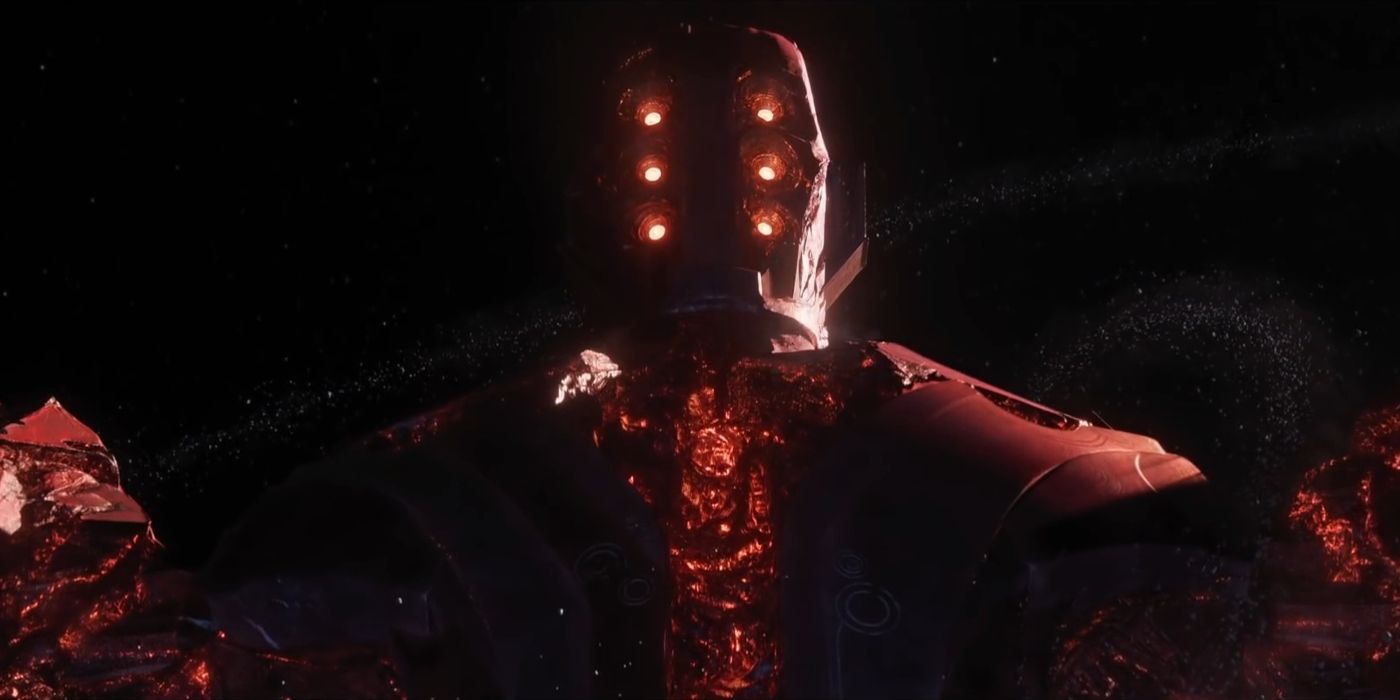WARNING: The following contains spoilers for Eternals, now playing in theaters.
Eternals challenges everything that fans know about the Marvel Cinematic Universe. From rewriting the origins of the Celestials to introducing a group of superpowered individuals hiding in plain sight, the film is not afraid to defy what came before it and introduces elements that change the way viewers perceive the MCU. Never has this been more evident than with one of the movie's biggest twists, which not only changes the way the characters of the story are viewed but could also potentially present a second motivation for an already established MCU villain.
Toward the end of Eternals' first act, it is revealed that the Eternals, who believed they were sent to protect humanity from the Deviants, were actually there for a much darker purpose. After the death of their leader, Ajak, Sersi receives the Celestial Communication Sphere, a device that allows an Eternal to communicate with the Celestials. When she finds herself speaking with the Celestial, Arishem, she learns that the real reason they were on Earth was to help facilitate an event known as “The Emergence.” This event, which occurs once a planet’s population is large enough, brings about the birth of a new Celestial and destroys the planet in the process.
It is an interesting plot twist that pushes the plot forward in a crucial way, but it does leave a much larger question for MCU fans to ponder. In Avengers: Infinity War, Thanos revealed that his desire to wipe out half of the universe was driven by his own planet’s downfall. He implies that Titan fell due to resource shortages brought on by overpopulation, and he believes that the rest of the universe might one day fall to the same fate if left unchecked. While this motivation made sense before, the idea that a Celestial's birth could destroy a planet well before overpopulation became a problem throws a bit of a wrench into Thanos' theory.
However, this seemingly large plot hole might have a simple explanation, one that may even add an extra layer of complexity to the character. It could be that Thanos was well aware of the Emergence. Such knowledge might have cemented his desire to search for the Infinity Stones. After all, he made it clear that his reason for committing such an atrocity was to save the universe from what he perceived to be an inevitable demise, suggesting that he valued the preservation of life above anything else. Had he known about the Emergence, then wiping out half the universe would have become even more of a necessity to him, as doing so meant that many planets and lives could be saved.
It would, therefore, not be surprising to learn somewhere down the line that Titan itself was destroyed by the birthing process of a Celestial. After all, little is known about the destruction of the planet, and there is a chance that Thanos omitted certain details in his explanation. Such a large-scale catastrophe could explain why the planet’s gravitational pull was also significantly affected since overpopulation on its own would probably not cause something of that scale.
While this is little more than speculation, it should be noted that Eternals could have possibly hinted at the fact that future MCU movies might explore Thanos's past. In a mid-credits scene, the viewers are introduced to Eros, an Eternal who also happens to be the “brother” of Thanos. If this is any indication of what’s to come, then the question of Thanos’ knowledge and relation to the Celestials could be explored in later films.
Eternals is now playing in theaters.



